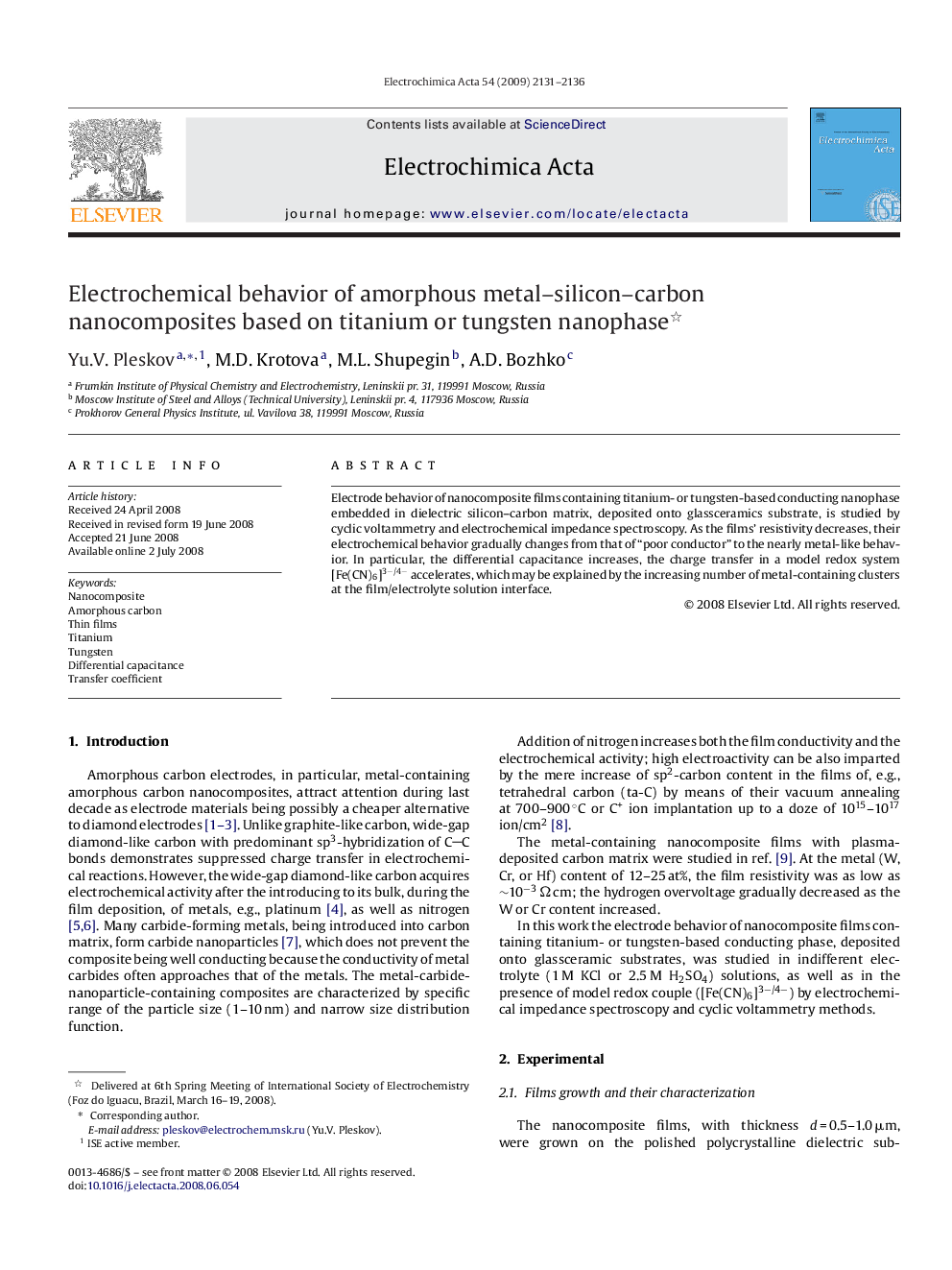| Article ID | Journal | Published Year | Pages | File Type |
|---|---|---|---|---|
| 193014 | Electrochimica Acta | 2009 | 6 Pages |
Abstract
Electrode behavior of nanocomposite films containing titanium- or tungsten-based conducting nanophase embedded in dielectric silicon–carbon matrix, deposited onto glassceramics substrate, is studied by cyclic voltammetry and electrochemical impedance spectroscopy. As the films’ resistivity decreases, their electrochemical behavior gradually changes from that of “poor conductor” to the nearly metal-like behavior. In particular, the differential capacitance increases, the charge transfer in a model redox system [Fe(CN)6]3−/4− accelerates, which may be explained by the increasing number of metal-containing clusters at the film/electrolyte solution interface.
Keywords
Related Topics
Physical Sciences and Engineering
Chemical Engineering
Chemical Engineering (General)
Authors
Yu.V. Pleskov, M.D. Krotova, M.L. Shupegin, A.D. Bozhko,
